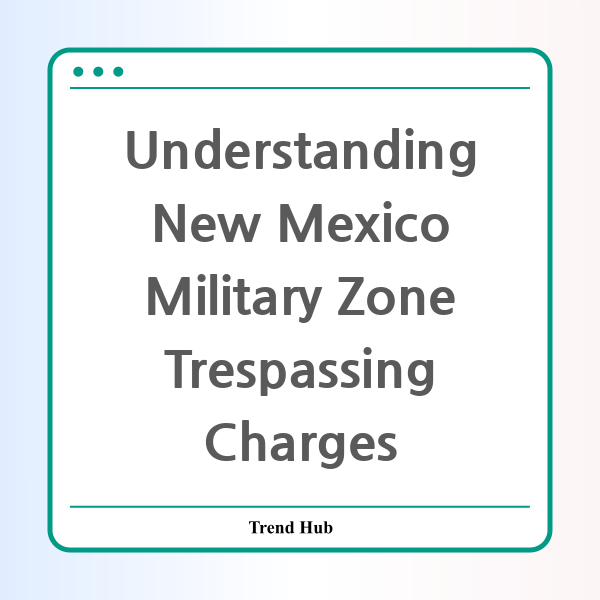* This website participates in the Amazon Affiliate Program and earns from qualifying purchases.

Are you aware of the implications of the new military zones established in New Mexico?
The U.S. Attorney for the District of New Mexico recently announced that 82 individuals were charged with trespassing into a newly established National Defense Area along the border. This significant event has raised numerous questions about the enforcement of military regulations and the treatment of migrants. In this blog post, we will delve into the details of these military zone trespassing charges, the implications of the new regulations, and their potential impact on border communities.
On April 24, authorities began charging individuals under a statute known as Title 50, which specifically addresses unauthorized entry onto federally protected Defense property. This enforcement is part of a larger initiative aimed at tightening control over the nearly 170-mile-long, 60-foot-wide military buffer zone adjacent to the border wall in New Mexico. The area is closely monitored by the Joint Task Force-Southern Border, which collaborates with the Department of Homeland Security to prevent illegal activities.
The establishment of this buffer zone has sparked concerns regarding the militarization of border communities. Civil rights organizations have expressed discomfort, arguing that this enforcement approach exacerbates the challenges faced by migrants seeking asylum. While the military's role has traditionally been to defend the nation, the use of military resources in civilian law enforcement scenarios has drawn scrutiny.
Under the newly instituted regulations, any individual, including U.S. citizens, found trespassing in the National Defense Area will face federal prosecution. This aggressive enforcement comes in the wake of a notable decrease in border crossings, raising questions about the necessity and appropriateness of militarizing the border.
The military's involvement in border security, particularly under the Trump administration, has been a complex issue. Although the Posse Comitatus Act prohibits the military from enforcing civilian laws, exceptions like the military purpose doctrine allow for military action in specific situations. Critics argue that leveraging military power for immigration enforcement perpetuates a narrative of invasion, despite evidence indicating a significant decline in crossings.
Recent statistics reveal a remarkable 87% decrease in migrant encounters in the El Paso sector compared to August 2024. Advocates for migrant rights emphasize that these measures not only criminalize vulnerable populations but also jeopardize humanitarian efforts in the region. Tragically, data indicates that migrant deaths in the El Paso sector have been increasing, underscoring the urgent need for humane immigration policies.
In conclusion, the recent charges stemming from the enforcement of military zone regulations highlight the contentious intersection of national security and humanitarian rights concerning immigration. While the government aims to assert control over the border, the implications of these actions raise ethical questions about the treatment of individuals seeking refuge and the broader impact on community relations along the border.
As these developments unfold, it is essential to remain informed and engage in discussions about the best way to approach border security while upholding human dignity and rights. What are your thoughts on the new military zone and its implications for migrants and border communities?
* This website participates in the Amazon Affiliate Program and earns from qualifying purchases.